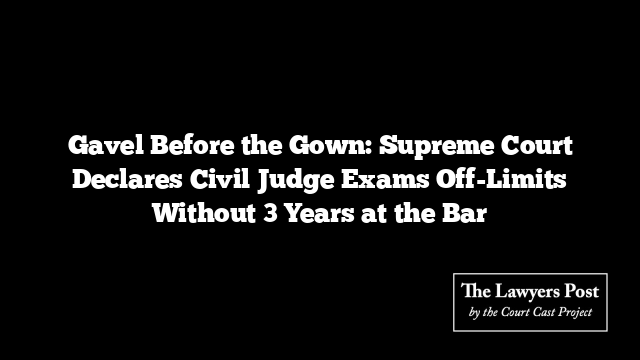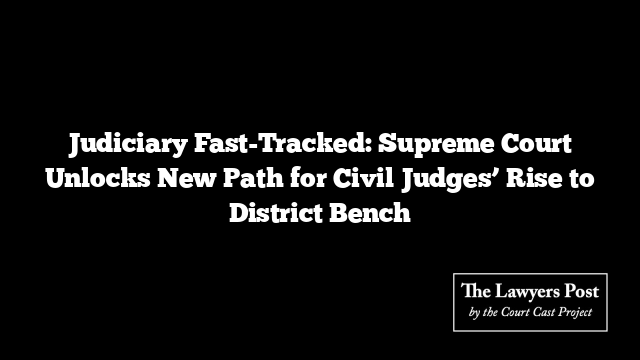In a ruling that slams the brakes on fresh law graduates vaulting straight into the judiciary, the Supreme Court has revived a long-contested rule: no robe without real-world experience. Aspiring civil judges across India must now prove at least three years of legal practice before they even think about sitting for the Civil Judge (Junior Division) examination.
The judgment, delivered by a bench led by the Chief Justice and Justices AG Masih and K Vinod Chandran, resuscitates a 2002 rule from Madhya Pradesh that had gathered dust in courtrooms and legal petitions for years. With this ruling, the Court has ordered state governments to revise their judicial service rules to align with this minimum threshold. No shortcuts. No exceptions.
And here’s the fine print: the three-year clock starts ticking from the moment a candidate gets provisionally enrolled as an advocate—not from when they clear the All-India Bar Exam. The Court acknowledged that AIBE timelines vary wildly across jurisdictions, and relying on it to measure legal experience would create more chaos than clarity.
But don’t think this is just a numbers game. Legal experience, the Court emphasized, isn’t about warming a chair in a lawyer’s office. It has to be real, verifiable, courtroom-grounded practice—endorsed by a senior advocate with at least a decade at the Bar. Even a stint as a law clerk under a judge now counts toward this practice period, recognizing that such exposure offers invaluable insight into judicial reasoning and court machinery.
What about those already eyeing the judge’s chair in the current recruitment cycle? The Supreme Court threw them a rope: the ruling kicks in only for future selections. Any appointments already in motion can proceed as planned. The decision also lifts a temporary freeze on recruitment processes that had been put on hold during the legal wrangling over this issue.
Behind the legalese lies a deeper concern flagged by the Court—the danger of judges stepping into courtrooms straight out of lecture halls. Matters of liberty, property, and life aren’t theoretical puzzles. The bench made it clear: judges need more than a law degree; they need the grit that only comes from grappling with real cases, seasoned mentors, and the unpredictable theatre of live courtrooms.
And so, with this judgment, the message is unmistakable—judicial robes must be earned in the trenches of practice, not handed out at the convocation hall.





